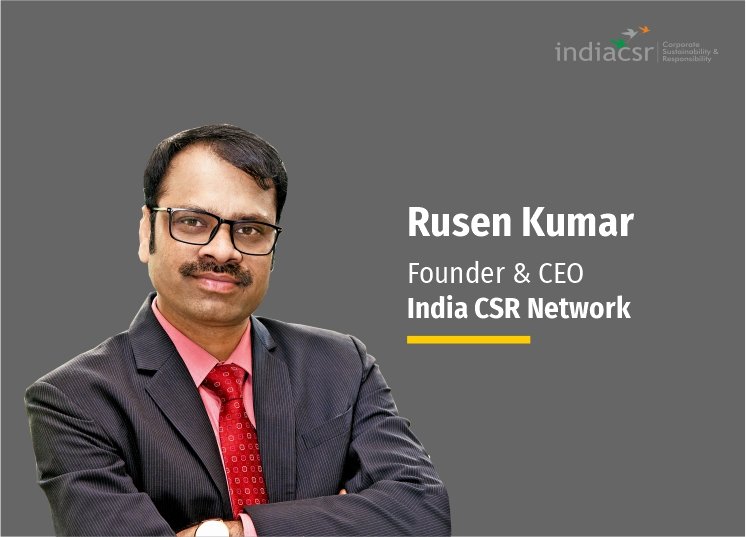
AKODARA,GUJARAT: Digital village is now a reality in India. ICICI Bank, India’s largest private sector Bank, has developed a digital village in the state of Gujarat.
Digital Transformation for Development
In line with Narendra Modi’s vision of Digital India, Bank has partnered with the Government to transform Akodara into a Digital Village.
Empowering Through Technology
In this village, technology acts as a catalyst for development, enabling local business opportunities, education, and improving health & welfare. ICICI Bank has set up digital facilities in financial services, education, and healthcare services within the village.
Cashless Transactions and Digital Education
Local financial transactions happen through mobile banking, debit cards, and internet banking instead of the conventional mode like cash. All the transaction points in the village for purchase or selling activity have been digitized to make it a cashless village.
The schools in the village use technology to impart education to village students through integrated projector cum computer with smart board interactive features provided by ICICI Foundation. Teaching happens with the help of audio-visual content mapped to the Gujarat State Board curriculum in the classrooms.
Technology in School Management and Healthcare
Schools have also been provided School management software to manage academic and administrative tasks such as student details, student attendance, school time-table & examination scheduling and examination results.
Villagers have access to quality medical advice in the village through e-health centre. Medical Diagnosis happens in the e-health centre in the village, which is transmitted to medical experts who then analyze and provide medical advice accordingly. ‘ICICI Digital Village’ at Akodara in Sabarkantha district of Gujarat enables villagers to use technology in various aspects of life, including banking, payments, education, and healthcare among others.
Three Dimensions of Digital Village Initiative
Here, financial transactions are cashless, textbooks are paperless, children read books on LED monitors and Tabs, patients can avail the facility of telemedicine, and wi-fi connectivity is available across the village. The digital village initiative has three dimensions. The first dimension is to enhance access to banking and provide seamless banking services.
Pioneering Technology for Banking Access
It is using pioneering technology of tab banking to open a savings bank account. Tab Banking allows customers to open accounts without submitting physical documents. The accounts are being serviced by a dedicated branch and an ATM. All adults in the village now have saving accounts.
Creating a Cashless Ecosystem
The Bank is providing technology-enabled banking services to the villagers, including statements, alerts, remittances, and fund transfers on the mobile phone. The villagers’ accounts are also being linked to Aadhar to enable direct transfer of government benefits into savings accounts.
ICICI is creating a cashless, digital payment ecosystem for the village. It has created an end-to-end payment solution leveraging Rupay cards and SMS banking at the village shops, at the mandi for sale of agri-produce, and at the cooperative society for the sale of milk. The second dimension of the initiative is to leverage technology in the social sectors for improvement in the lives of the villagers.
Leveraging Technology in Social Sectors
For that, The Bank is digitizing school attendance and school records and implementing a school management software in the village school. The Bank is providing smart boards, integrating projector and computer at the school and the anganwadi, with audio-visual digital content for classes 1 to 10.
Enabling Infrastructure for Technology Access
It will provide digital access to telemedicine via mobile or video conference, giving villagers access to medical expertise. It will bring its skill development programme to the village through the ICICI Academy for Skills. The third dimension of the strategy is to create enabling infrastructure to make technology available and access and disseminate information.
Key Elements of Enabling Infrastructure
The key elements of this are: High-speed broadband connectivity throughout the village via wi-fi using a wi-fi tower. Enabling farmers to access the latest information on prices of agricultural commodities on NCDEX.
About the author:
Rusen Kumar recognized for his significant contributions to the field of corporate social responsibility (CSR) in India. He is the founder of India CSR.
You may also like:
- “Responsibility is a New Opportunity”, Says Rusen Kumar at CSR International Conference
- The Danger of Disinterest: When Books Don’t Attract You – Rusen Kumar
- Rusen Kumar Honoured as Social Impact Leader by ASSOCHAM
- ASSOCHAM honors Rusen Kumar for remarkable contribution to CSR
- Rusen Kumar to speak at ASSOCHAM CSR & Sustainability Summit in Bengaluru







